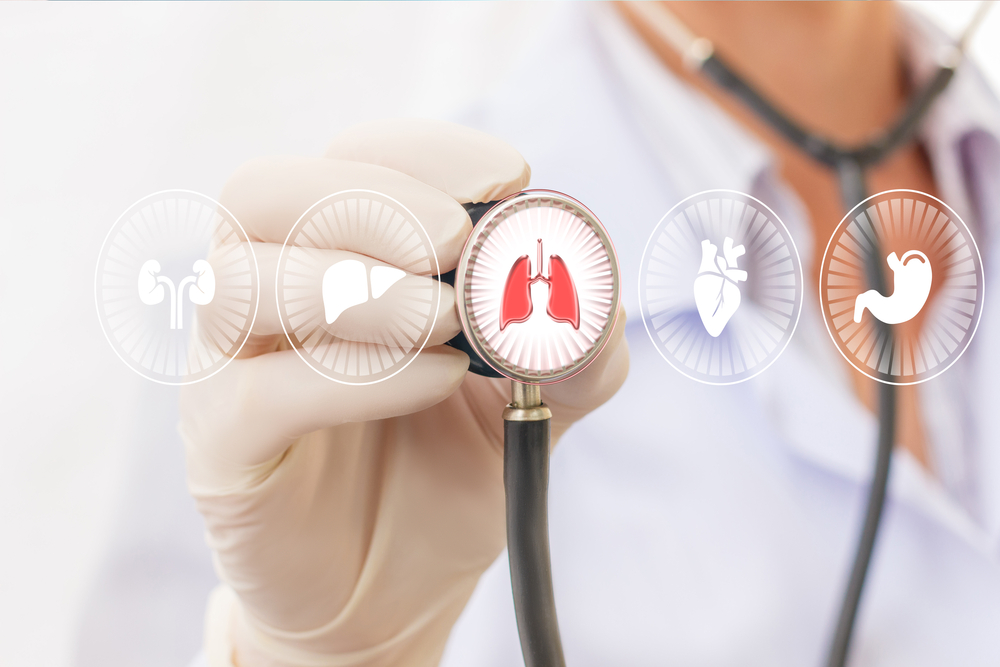Dosing Begins in 2nd Phase 3 Trial of Antibody Treatment for IPF

Dosing has begun in a second Phase 3 trial testing FibroGen’s investigational antibody pamrevlumab in treating idiopathic pulmonary fibrosis (IPF).
Still recruiting eligible patients at sites in three European countries — Georgia, Italy, and Hungary — and in Lebanon, the ZEPHYRUS-2 study (NCT04419558) is expected to enroll 340 people, ages 40 to 85, who were previously treated with approved IPF therapies — Esbriet (pirfenidone) or Ofev (nintedanib) — but had stopped using them. Contact and site information can be found here.
“We are excited to advance the Phase 3 clinical development program for pamrevlumab, a first-in-class antibody which represents a novel approach to the treatment of IPF,” Elias Kouchakji, MD, senior vice president of clinical development and drug safety at FibroGen, said in a press release.
Pamrevlumab (previously, FG-3019) is an engineered antibody designed to block the activity of connective tissue growth factor (CTGF). This protein is known to contribute to the progressive and excessive tissue scarring that characterizes IPF.
ZEPHYRUS-2 is evaluating pamrevlumab’s efficacy and safety over one year. Participants will be randomly assigned to pamrevlumab (30 mg/kg) or a placebo delivered directly into a vein every three weeks for 48 weeks.
Researchers will assess how pamrevlumab affects lung function as determined by changes in forced vital capacity (FVC), a measure of the amount of air that is forcibly exhaled after taking the deepest breath possible. Secondary study goals include changes in lung fibrosis progression (quantitative lung fibrosis) and patient-reported outcomes.
Participants completing the year-long study may be eligible to continue or start treatment with pamrevlumab in a separate, open-label extension study.
FibroGen’s program for pamrevlumab in IPF includes the ZEPHYRUS study (NCT03955146), which began dosing patients in July 2019.
This ongoing Phase 3 trial is also assessing pamrevlumab’s efficacy and safety over a period of one year, and has a similar primary goal: is the change in FVC from the start of the study. Eligible IPF patients, ages 40 to 85, must be intolerant or unresponsive to treatment with approved IPF therapies like Esbriet or Ofev, or not using them for other reasons.
ZEPHYRUS is still enrolling at sites in the U.S, Australia, Argentina, Taiwan, Chile, Hong Kong, and the Republic of Korea. More information is available here.
“The initiation of our second Phase 3 study of pamrevlumab for IPF furthers our research on the clinical benefits of inhibiting connective tissue growth factor (CTGF), an important biological mediator in fibrotic and proliferative disorders,” said Mark Eisner, chief medical officer at FibroGen. “We are committed to advancing the science of CTGF biology and evaluating clinical benefit in diverse diseases with unmet medical need, including IPF.”
ZEPHYRUS and ZEPHYRUS-2 are supported by the treatment’s safety and efficacy reported in two previous Phase 2 trials — PRAISE (NCT01890265) and a prior study (NCT01262001).
In PRAISE, treatment with pamrevlumab (30 mg/kg every three weeks) halted the progression of lung fibrosis and eased fibrosis in IPF patients at week 48, compared with those in a placebo group. These positive results were associated with better lung function.
Pamrevlumab has been granted orphan drug and fast track designations by the U.S. Food and Drug Administration as a potential IPF treatment.







